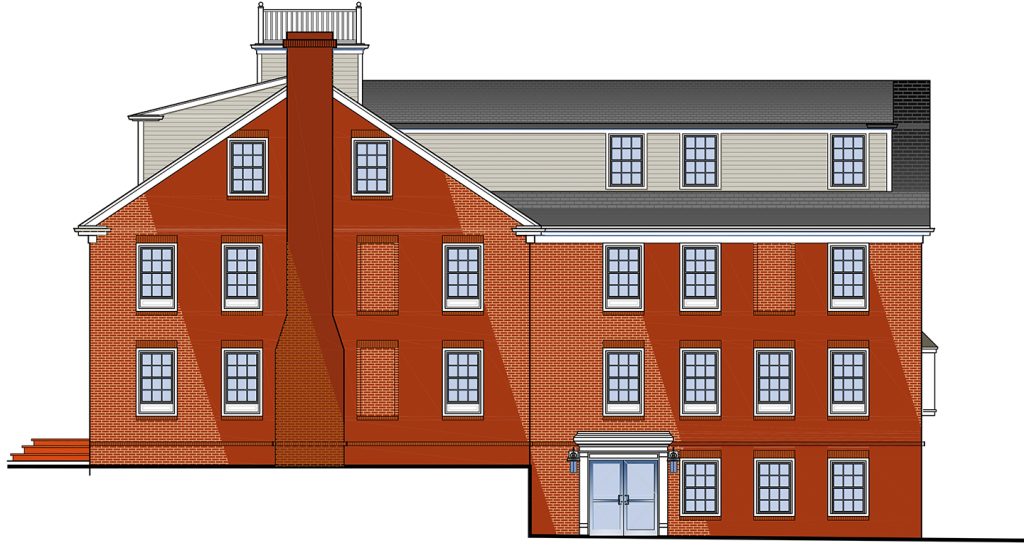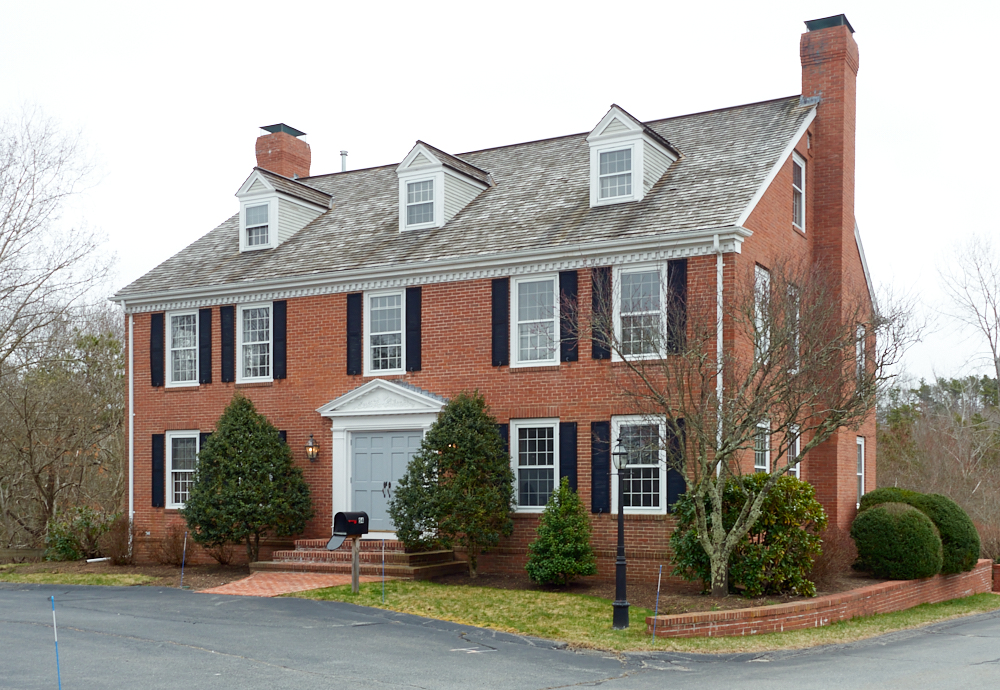Supporters of a plan to build a homeless shelter for up to 26 families in the Plymouth Industrial Park have faced a barrage of questions at precinct caucuses ahead of Saturday’s Town Meeting.
The Community Preservation Committee is proposing to authorize $3 million in taxpayer funds to go towards renovation of an office building at 54 Industrial Park Road so it can be used as an emergency assistance shelter. The measure requires the approval of Town Meeting. The project is expected to cost $7 million. If the $3 million expenditure – from funds collected through the Community Preservation Act – is OK’d, the rest of the money would come from the state.
The property is owned by the Plymouth Area Coalition for the Homeless. Plymouth families would be eligible for shelter if there is space at the time they become homeless, Sue Giovanetti, the Coalition’s director, explained during Tuesday night’s three-hour-long caucus of precincts 5 and 13 at Plymouth Municipal Airport. Giovanetti said she has faced similar questioning at other precinct caucuses.
At the airport caucus, precinct members raised more questions about the shelter than about any other article on the Town Meeting agenda.
At present, Plymouth families have no shelter to go to in town. The nearest family facilities are in Kingston, at Pilgrim’s Hope, a shelter for 13 families run by the Coalition, and at the Baymont by Windham Hotel in Kingston, where the Coalition provides education for families seeking work and permanent housing. Most families stay in a shelter for about a year, said Giovanetti, who is also a member of the Plymouth Independent board.
She argued at the airport caucus that the Industrial Park site is an ideal location because of its proximity to jobs and public transportation.

“Does the Plymouth school system have to provide anything?” asked John Sullivan, a Town Meeting representative from precinct 13.
Giovanetti said that if a child attended Plymouth Public Schools, Plymouth would pay, but if the child came from another town and wanted to continue attending school in that community, that town would pay.
Plymouth would pay for transportation of school-age children staying at the shelter, said Adam Blaisdell, business manager for the schools. Blaisdell said Plymouth already has about 100 homeless students.
“Makes it very hard to do a budget, don’t you think?” Sullivan said in response.
Alan Zanotti, who co-owns an office building at 64 Plymouth Industrial Park Road, two doors down, has been the most vocal opponent of the proposed shelter. He was present at Tuesday night’s caucus to press his case, as he has been at other caucuses.
Zanotti argued that residential use is not allowed by the zoning for the Industrial Park. Because the shelter is an educational institution, however, it would be exempt from zoning restrictions under state law.
Zanotti reminded the caucus that the Advisory & Finance Committee voted 8-6 against the shelter in a controversial meeting at which two members resigned over the charged tone of questions about whether the homeless families would come from outside the U.S. and bring crime to town. Zanotti cited 132 emergency response calls over a three-year period at the Pilgrim’s Hope shelter on Bishop’s Highway in Kingston. Neither Giovanetti nor Bill Keohan, chair of the Community Preservation Committee, which supports the shelter, were given an opportunity to address his statements.
Giovanetti, in an interview with the Independent afterward, said that many of the calls came from parents with a sick child and no transportation. Also, she said, smoke alarms connected directly to the fire department often went off when people were cooking in the kitchen. The replacement of old stove vents with commercial ones has dramatically reduced fire calls, she said.

Zanotti also said that children at the proposed shelter would be in danger of being hit by vehicles passing by a fenced-in play yard planned for the front of the building.
“It will mimic what you see at the childcare center down the street from us,” Giovanetti told the Independent. “Our primary goal is to make sure that children and their families are safe. We’re not about to place anyone in a dangerous situation.”
Zanotti also pointed out that the town would not be able to count the shelter towards its inventory of subsidized housing. Massachusetts’s 40B law allows developers to circumvent zoning if a town’s subsidized housing units make up less than 10 percent of its housing inventory. Plymouth is far below that 10 percent, with just 6.9 percent of housing being deemed affordable.
“Here in Plymouth, where immigration began, here we are debating this issue of people coming to Plymouth,” Keohan told the Independent. “This is a debate that is happening not only locally but internationally. I’ve heard some of the most awe-inspiring things at the caucuses when it comes to (the shelter), and I’ve heard some of the most disappointing things.”
Despite the opposition – which extends beyond Zanotti – Giovanetti remains optimistic that Town Meeting will approve funding.
“I’m very encouraged by the feedback that we’ve been hearing at all the districts,” Giovanetti said. “I will say that there are people who have questions, and those questions really seem to be driven by misinformation that’s out in the community, or just lack of knowledge about how the emergency shelter program works.”
Fred Thys can be reached at fred@plymouthindependent.org

